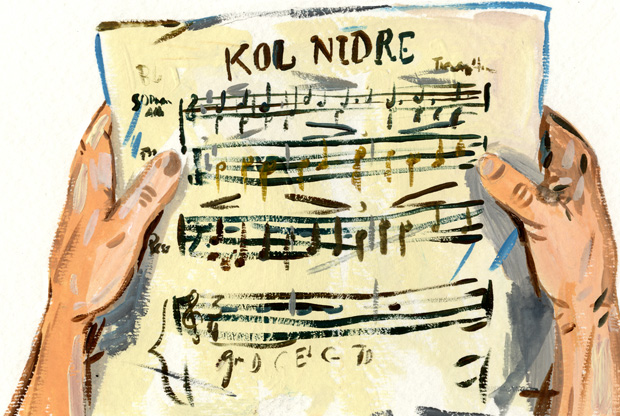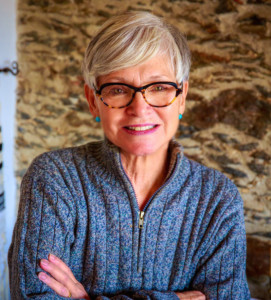Yom Kippur Begins with Kol Nidre
(in English and Italian)
“Kol Nidre,” These are Aramaic words that begin a Jewish ritual that we Jews have done for 1,000 (one thousand) years.
Kol Nidre sono le parole aramaiche con le quali comincia un ritulale ebraico che noi ebrei abbiamo fatto per mille anni.
“Kol Nidre,” means “all of our vows,” all of our promises that we tried to keep but could not keep.
Kol Nidre vuol dire “Tutte le nostre promesse” che abbiamo provato di fare, e che non abbiamo mantenuto.
“Kol Nidre,” has special significance for Jews like me whose families were forced into conversion.
Kol Nidre ha l’importanza speciale per gli ebrei come me, perche’ le nostre famiglie sono state forzate a convertirsi.
Our children were threatened with torture and death until we promised to discard our Jewish heritage.
I nostri antenati hanno ricevuto le minacce . contro i loro bambini. L’Inquizione ha detto: “Lasciate le tradizioni ebree o ammazzeremo i vostri bambini.”
For this reason, Kol Nidre brought the maranos and the anusim back to G-d.
Per questa ragione, la preghiera, “Kol Nidre” e’partita dai marani, gli anusim, a Dio.
“Kol Nidre” means that no matter what happened to us, we remained faithful. We remained Jews in our hearts.
Kol Nidre vuol dire che non hanno piu’ importanza le cose che sono successe perche’ noi abbiamo ripreso fiducia. Siamo rimasti Ebrei nei nostri cuori.
“Kol Nidre” is our song. But here in Italy we sing “Kol Nedarim.”
Kol Nidre e’ il nostro canto. Ma qui, in Italia cantiamo “Kol Nedarim.”
We use these Hebrew words because they are older than the words in Aramaic.
Scegliamo queste parole ebraiche, perche’ sono piu’ vecchie come le parole aramaiche.
They come from the Italian rite, found in the siddur of Rav Amram that was written in the 9th century.
Le troviamo nel rituale italiano, nel Siddur (il libro delle preghiere) di rav Amram che ha scritto durante il nono secolo.
The melody is from Turin and it was this melody that gave the structure to all of the Kol Nidre melodies that followed.
La melodia e’ da Torino. E questa e’ stata l’unica melodia che ha dato la struttura alle altre melodie di Kol Nidre che sono seguite.
As we participate in the beautiful rituals of Yom Kippur our meditation tonight is on the Hebrew letter, “Hey.”
Questa sera, mentre participiamo al rituale bellissimo di Yom Kippur, la nostra meditazione e’ la lettera ebraica, “Hey.”
 The letter Hey is the fifth letter of the alefbet. It reminds us of our beloved Torah, the five books of Moses, that will stand beside us at during the Kol Nidre service.
The letter Hey is the fifth letter of the alefbet. It reminds us of our beloved Torah, the five books of Moses, that will stand beside us at during the Kol Nidre service.
La lettera, Hey, e’la quinta lettera della “Alefbet.” E’ il simbolo della nostra Torah cara, anche i cinque libri di Mose che stanno vicino a noi durante il servizio sacro di Kol Nidre.
We find the letter Hey two times in the sacred name of G-d, the Tetragrammaton… “Yud, Hei, Vav, Hei,”.
Troviamo la lettera “Hey,” due volte nel nome sacro di Dio… si chiama, “Tetragrammaton.” Le lettere, “Yud, Hei, Vav, Hei.”
Rabbis have said that this name is the breath of G-d that formed Adam Kadmon (the first human being) and gave life to the entire universe.
I rabbini hanno detto che questo nome e’ il respiro di Dio che ha fatto “Adam Kadmon,” la prima persona e dato la vita al’ universo.
When G-d spoke to Abraham and Moses, they replied using one word, “Heenayni.” This means “Here I am.” “I am present.”
Quando Dio ha parlato ad Abramo e Mose, loro hanno risposto con l’unica parole, “Heenayni”… vuol’dire “Sono qui.” “Io sono presente.”
Rabbi Nachman of Bratslav taught us that “Heenayni” is very important because to find G-d we must be fully alive in the present moment.
Rav Nachman di Bratslav ha insegnanto che “Heenayni” ha un’importanza grande perche’ per noi nel cercare Dio, dobbiamo vivere nel momento presente.
Rabbi Nachman said, “Our world consists of nothing except the day and the hour that we stand in now. Tomorrow is a completely different world.”
Rav Nachman ha detto, “Il nostro mondo e’ solo il giorno, le ore, che abbiamo adesso. Domani il mondo sara’ completamente diverso.”
How do we find G-d? The letter Hey helps us.
Come cerchiamo L’Uno Eterno? La lettera, “Hey,”ci aiuta in questo.
The letter Hey begins the Hebrew word “Hitbodedut,” which means the action of opening your soul.
La lettera, “Hey,” comincia la parole ebraica, “Hit bo de dut”che vuol dire: l’ azione quando apriamo la nostra anima.
The letter Hey, the number five remind us that there are five dimensions to the human soul:
La lettera “hey,” il numero ebraico, cinque o “hamishi,” dice che ci sono cinque dimensioni nelle nostre anime.
Nefesh – physical instincts – istinti fisici.
Ruach – emotions – emozioni.
Neshamah – the connection between the mind and the heart – Il legame fra la mente e il cuore.
Chayah – the bridge to spiritual awareness – il ponte verso la consapevolezza spirituale Yechidah – cosmic unity – unita’del cosmo.
Finally, the letter Hey leads us to Talmud. In the Talmud we find five things to do in the new year that promise to lead us to greater self respect.
E finalmente, la lettera, “Hey,” ci porta al Talmud. Nel libro di Talmud, troviamo cinque cose di fare nel nuovo anno. Se faremo queste cinque cose noi avremo maggiore rispetto per noi stessi.
Non lasciare la tua sapienza fuori dalle tue azioni, o sarai come un albero con molti rami ma radici deboli.
Abituati ad usare il bene. In poco tempo diventera’ la tua massima gioia.
Guidica gli altri per le loro azioni, e non sarai portato a guidizi sbagliati.

Se altri fanno buone azioni per causa tua, quelle buone azioni saranno considerate tue.
Felici sono quelle persone che sono ricche di azioni buone, perche’ sarano onorate in vita e ricordate per sempre per la loro bonta’ nel mondo a venire.
Kol Nidre. For us Italians, Kol Nedarim.
Kol Nidre per noi italiani si chiamavano Kol Nedarim.
Five Books. Five words. Five Revelations.
Cinque libri, cinque parole e cinque rivelazione.
And five promises for a new life in 5781.
E cinque promesse per una vita nuova in 5781.

